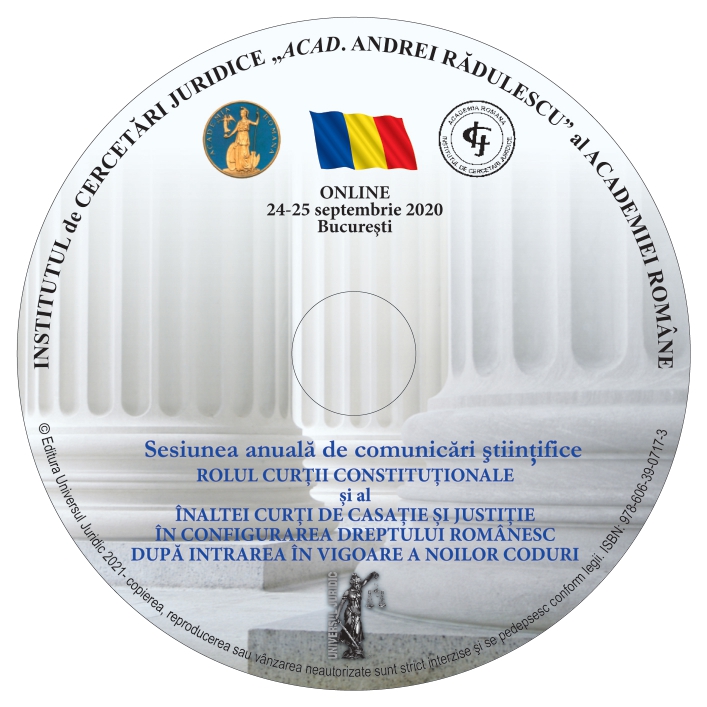Rolul jurisprudenței Curţii Constituţionale şi a Înaltei Curţi de Casaţie şi Justiţie în configurarea și în clarificarea unor prevederi ale legislației românești actuale în materia executării pedepselor penale privative de libertate
The Role of the Jurisprudence of the Constitutional Court and of the High Court of Cassation and Justice in the Configuration and Clarification of Some Provisions of the Current Romanian Legislation Regarding the Execution of Criminal Custodial Sente
Author(s): Radu Vlad Pojan
Subject(s): Law, Constitution, Jurisprudence, Criminal Law
Published by: Universul Juridic
Keywords: prisoners; rights; obligations; requests; appeals;
Summary/Abstract: The solutions given by the Constitutional Court and the High Court of Cassation and Justice have shaped the application and the interpretation of the law, including the jurisprudence, in the matter of the execution of the prison sentence. In order to identify these effects, several decisions of these two court sand legal doctrine were analyzed. The results show that, in the execution phase of the sentence, in case of solving the appeals provided by Law no. 254/2013, for the convicted person, the presence before the court and the legal assistance are not obligatory, the activities in the execution phase are not subject to the procedural rules specific to the trial phase, it is not compulsory for the justice act to be free of charge and conditional release is not a right, but only a vocation. The court in whose district the place of detention is located, at the date of the request of the convicted person, must resolve that request, the executing court or the court in whose district the place of detention is located, solve the request of the convicted person for granting the compensatory days, and the incomes resulting from the work of the detainees, during detention, can be with held for the execution of fiscal debts established by the court decisions.
- Page Range: 480-487
- Page Count: 8
- Publication Year: 2020
- Language: Romanian
- Content File-PDF

